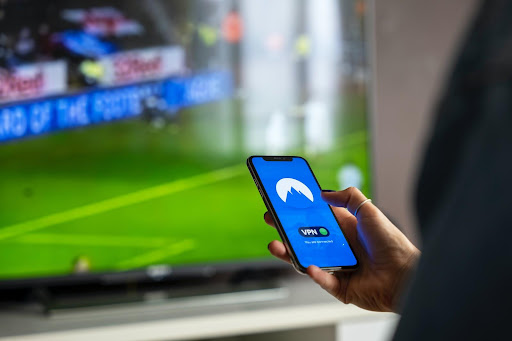Watching YouTube or browsing social media lately, you’ve likely come across ads trumpeting the virtues of using a virtual private network on your devices. Known more commonly as VPN, a virtual private network is a private network that allows you to browse the internet both anonymously and securely. Thanks to Congress eliminating FCC privacy rules, we live in a world where your data is always being collected—and often being sold to third parties—a VPN is almost an essential tool. VPNs encrypt your data so that your ISP can’t see what you are doing online, protects your privacy, and much more. Maintaining your privacy online isn’t easy these days, but with a VPN, you can do that and more. In this article, we’ll explore what a VPN is and for reasons to use one at your home or business. Read it below.
What Is A VPN?
A VPN, or virtual private network, is a way to use encrypted data to browse the internet privately and securely. It improves privacy by routing your traffic through a server location and masking your IP address. By doing this, you can make sure your internet service provider can’t see your browsing history (they might try to sell your data!) and maintain your privacy in the process. VPNs use several encryption methods to also ensure data can’t be decrypted, lost, or stolen as it moves through a network. Using a VPN is a private and safe way to keep your browsing and work private while online. Whether you need a VPN for remote work, private browsing, or other reasons, it’s a good idea to get one and install it on your browser of choice today.
Secure Browsing in Public
Speaking of secure browsing, one of the biggest selling points of a VPN is the ability to browse securely in public. Did you know that public Wi-Fi connections are often not secure and just about anybody in the area can see exactly what you’re doing on your laptop if you’re connected to such networks? That can be a real privacy and security issue, especially if you’re doing anything that involves sensitive data. These networks are a convenient, but not always private service for everyone to use. Users definitely need to take their own precautions before they log into one. These networks are at high risk of what’s known as a man in the middle attack. This is where attackers can steal your traffic, compromise your personal information, take your data or passwords, and just generally mess with you. A good VPN can help you establish secure protocols and keep your website traffic obscured. That way, attackers have no way of accessing your sensitive data we’re seeing what you’re doing online while working in public.
Protect Your Privacy With EncryptionÂ
Most people use a VPN as a means of securing more privacy while they’re online. The sad reality of our world is that data is a valuable commodity and anyone—from your ISP to third-party companies—would love to get their hands on it. Using a secure and private VPN is the best method for maintaining your privacy online. Protecting and encrypting your data is all par for the course for the course for any quantity VPN. Encryption protocols help make data transfer safe. Encryption algorithms help you protect sensitive and personal data as it moves all over the internet. It’s a powerful security method because it’s hard for others to see what’s in the data. And no one but your VPN can decrypt it. This makes it much safer to work online and is one of the primary reasons VPNs are so popular these days.
Circumvent Geo-location RestrictionsÂ
Virtual private networks aren’t just good for encrypting data and protecting privacy. They can also help protect anyone who needs to remain anonymous, such as a journalist reporting a high-stakes topic in a dangerous area. This is because they can serve them to your geo-location restrictions. By spoofing the location of the original computer, they make other computers on the network think traffic is coming from a different location. It also helps users who want to experience television or media from another region access it from their country. For instance if you want to watch the latest episode of a Korean action show or your favorite British television, a VPN can help you access it with ease.
Faster Speeds
Browsing the internet on a slow connection is not something anyone wants to experience in this day and age of broadband and high-speed internet. It would make sense in the halcyon days of 56k modems and America online, but not right now. Fortunately, using the right kind of can prevent your ISP from throttling your bandwidth. You can watch a few videos, play an online game, or do whatever you please without worrying about throttling. You also won’t be dealing with excessive ads or those annoying pop up videos that obscure 2/3 of the page you’re trying to read. VPNs only use a little bit of extra processing power to encrypt the traffic, you’ll find that you are browsing a little bit faster and able to enjoy more of what the internet has to offer with the right VPN service.

